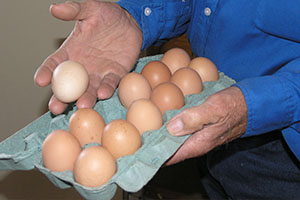By Justin Walker
Communications Specialist
Texas joined 12 other states in a lawsuit against Massachusetts over a controversial new cage-free law.
The law, which was approved by Massachusetts voters in 2016, restricts the sale of eggs and other food products from farm animals. The 13 states that oppose the rule claim it’s unconstitutional.
If it stands, only cage-free eggs, regardless of the state the eggs were produced in, could be sold in Massachusetts by 2022.
Opposing states claim Massachusetts is trying to impose its own regulatory standards on farmers in other states. The plaintiffs say farmers “will have to increase their production costs by decreasing flock or herd size, investing in new infrastructure and undertaking contentious zoning approval processes.”
Supporters of the bill, such as the Humane Society of the United States (HSUS), do not believe the challenge will succeed. Paul Shapiro, vice president of Policy for HSUS, believes voters and the state are within their legal right.
Texas is joined by Alabama, Arkansas, Louisiana, Missouri, Nebraska, North Dakota, Oklahoma, South Carolina, Utah, West Virginia and Wisconsin in the lawsuit.
The states claim that cage-free laws similar to this have cost U.S. consumers up to $350 million annually in higher egg costs. In a July 2016 article, the Boston Globe raised concerns over increased egg costs as a result of this law.
According to the American Egg Board, Texas ranks fifth in egg production. Nebraska is the only other state in the top 10 that has joined the lawsuit. California, which was recently sued over a 2015 law similar to this one, ranks seventh.

